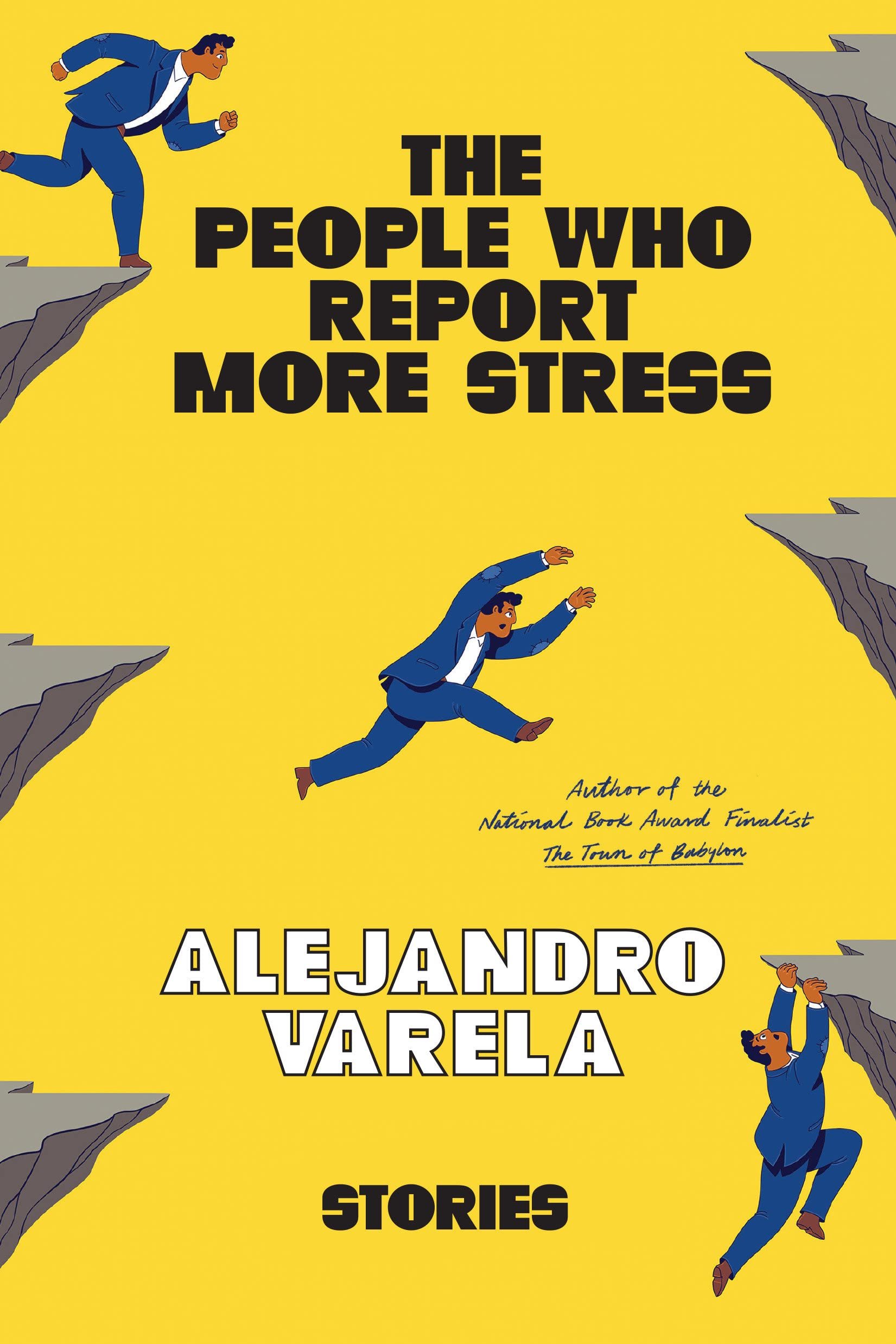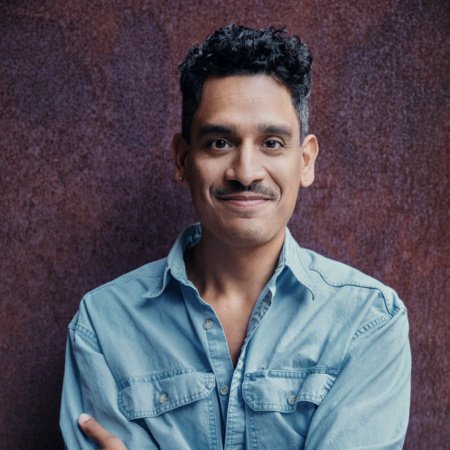Following his debut novel, The Town of Babylon, a 2022 National Book Award Fiction finalist, Alejandro Varela’s first short story collection, in its refined handling of complex subjects, appears to be on the cusp of similar success. Across thirteen loosely interconnected stories, Varela explores topics that both cause and relieve anxiety, which become particularly resonant for the Latinx reader, whose experience is explored in multitudes. The People Who Report More Stress primarily follows Eduardo, a New York-based Salvadoran-Colombian health researcher, his husband, Gus, and their two sons. Readers follow Eduardo through various stages of his life, from being a young boy on family trips in the 1980’s to an older man returning to the dating pool. The majority of the collection, however, follows Eduardo as he navigates a midlife standstill in his romantic, familial and personal lives.
The collection’s narrative style can be disorienting as readers follow Eduardo across time and location. However, this occasional absence of temporal and geographic stability mirrors the fluctuating nature of one of the book’s largest constants: Eduardo and Gus’ relationship. The opening story “An Other Man,” introduces Eduardo as he simultaneously acknowledges the certain beauties of married life and the possibilities that lie outside of it. In “The Six Times of Alan,” we sit with Eduardo as he articulates, in therapy sessions, the challenges of having a white partner and his desire for someone “who would inspire [him] to be a better human, someone who questioned power structures, someone to shake [him] out of [his] complacency.” We see how much of an ask that might be as Varela shifts to Gus’ perspective in “Waiting.” In this story, Gus reveals his side, admitting he is often “disarmed by Eduardo’s honesty and curiosity.” It is a complex marriage for readers to follow, and has one analyzing class and racial dynamics along with the individual characters themselves.
As the title suggests, stress is a prominent character in the book, but New York City proves to be another. Varela paints an accurate picture of a rapidly-gentrifying Brooklyn, as well as the new generation of upper-middle class, queer, and BIPOC residents living there. In the story, “She and Her Kid and Me and Mine,” Eduardo reflects on what it’s like to raise his son, Julio, in a predominantly white neighborhood. The gap between their upbringings is “vast and vertigo inducing,” and Eduardo is hyper aware of his son’s worldview and sense of self-worth as Julio predominantly plays with white children. This mindset and context has Eduardo thinking about his proximity to privilege too. He views the structural divisions of the neighborhood from the back seat of a cab in “The Great Potato Famine,” but also thinks about how people in the city view him (a prospective date tells him that they are “a sucker for Latinos.”). While Eduardo’s consistent, and often intense, questioning of societal failings is occasionally off-putting to other characters, it confirms he’s still on his own journey of self-discovery. It’s not defeat that causes Eduardo to think he “succumbed to the constructed order of things”—it’s his understanding that, as he begins to benefit from newfound advantages, he’s being complicit in the up-keep of some of these systems.
“A collection for readers who understand the protagonist’s plight and who can see themselves in his journey. Through Eduardo, we are allowed to feel everything, and understand that it’s okay. ”
Eduardo’s excavation for the truth is the most consistent part of the collection. Whether he is noticing his white husband being able to hail cabs, while drivers speed past him, or directly stating the frustration of having partners who are unable to recognize microaggressions, Eduardo is constantly searching for a place where he can be heard. We see him grow from the child in “Midtown-West Side Story,” where he witnesses his parents struggle to keep their family afloat, his father, Jorge, “[maintaining] the air of someone who might have done more if he’d had more opportunities.” We see his perception of his relatives in “The Caretakers,” where he begins to realize the standards that his aunt was held to as a woman, mother and sister, only when she’s on her deathbed. Through this, Eduardo subconsciously provides an intimate look into the Latinx family unit: the expectations from elders and the intergenerational trauma of leaving the homeland, but also the loyalty and perseverance that is firmly rooted within. Readers can see that while Eduardo notes where some of his anxiety may have originated, his loved ones are a reason he continues his fight forward.
Eduardo’s racing thoughts on queer parenthood, political and moral shortcomings, and the trials of intersectional identities may come off as heavy-handed, however, their overwhelming nature is its magic. It’s difficult to orient oneself when balancing numerous factors that may or may not be working against you. It’s emotionally-taxing to be a parent, to be in a relationship, to be a brown body in a white world. Varela is astute in his observations of these complexities and approaches them with honesty that shines on the page. The result is a collection for readers who understand the protagonist’s plight and who can see themselves in his journey. Through Eduardo, we are allowed to feel everything, and understand that it’s okay.
Alejandro Varela (he/him) is a writer based in New York. His debut novel, The Town of Babylon (2022), was published by Astra House and was a finalist for the National Book Award. His work has appeared in the Point Magazine, Georgia Review, Boston Review, Harper’s, and the Offing, among others outlets. Varela is an editor-at-large of Apogee Journal. His graduate studies were in public health. Access his work at alejandrovarela.work. You can also find him on Twitter and IG: @drovarela.
Carly Tagen-Dye is a Guatemalan-American writer and editor based in New York City. Her fiction and nonfiction have appeared in The Augment Review, NY Press, Alma and The Sock Drawer, among other outlets, and her novel, All That You Can See, was a finalist for CRAFT's 2022 First Chapters Prize. She has previously worked in publishing at Sterling Lord Literistic and Catapult Book Group. You can visit her website at www.carlytagendye.com.










